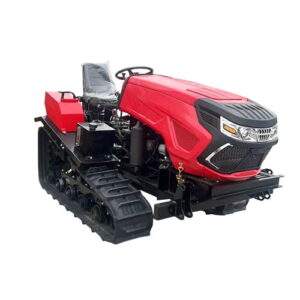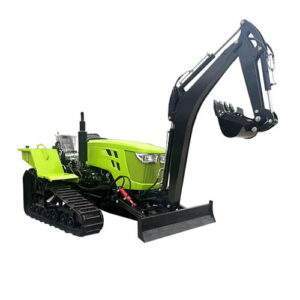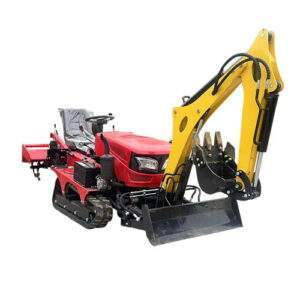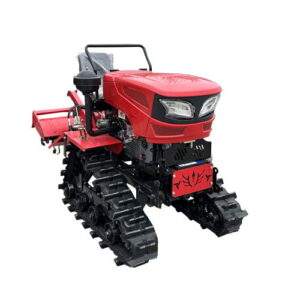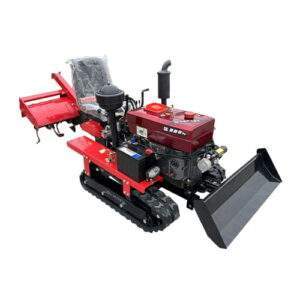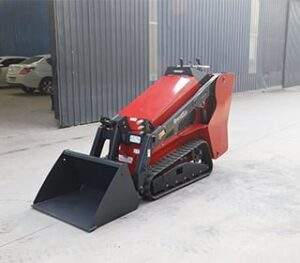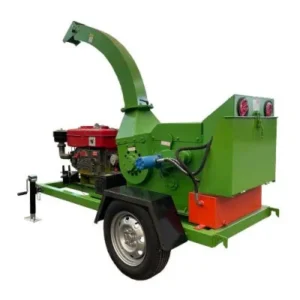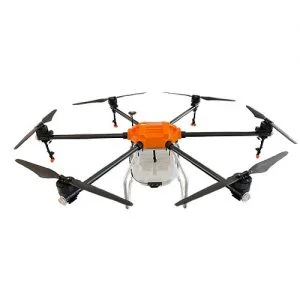Complete Guide to Small Tractors: Uses, Benefits, and Buying Tips
Introduction
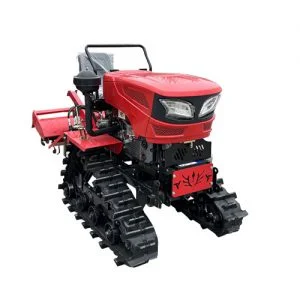
Small tractors are versatile machines that play a crucial role in agricultural, landscaping, and residential settings. This comprehensive guide explores the various uses, benefits, and essential tips for buying small tractors. Whether you’re a hobby farmer, landscaper, or homeowner, understanding the capabilities and features of small tractors can help you make informed decisions.
Uses of Small Tractors
Agricultural Applications
Mini tractors are essential for a wide range of agricultural tasks, including plowing, planting, and harvesting on small farms and orchards. Their compact size allows them to maneuver easily between rows of crops while their robust engines provide the power needed for various farming operations.
Landscaping and Grounds Maintenance
In landscaping, small tractors excel in tasks such as mowing, tilling, and hauling materials like mulch and gravel. They are equally effective in maintaining large residential lawns and commercial properties, offering precision and efficiency in landscaping projects.
Snow Removal and Property Maintenance
During winter months, small tractors equipped with snow blowers or plows become indispensable for clearing driveways, pathways, and parking lots. Their agility and traction enable efficient snow removal, ensuring safe and accessible premises.
Benefits of Small Tractors
Versatility
Small tractors can be fitted with a variety of attachments, including loaders, mowers, tillers, and post-hole diggers. This versatility allows them to perform multiple tasks with a single machine, reducing the need for additional equipment and enhancing productivity.
Maneuverability
Their compact size and tight turning radius make small tractors well-suited for navigating confined spaces and narrow pathways. This agility is particularly advantageous in densely landscaped areas or when working around obstacles.
Cost-Effectiveness
Compared to larger tractors, small tractors typically have lower initial costs, as well as reduced operating expenses in terms of fuel consumption and maintenance. They offer a cost-effective solution for homeowners and small businesses looking to invest in reliable equipment without breaking the budget.
Factors to Consider When Buying a Small Tractor
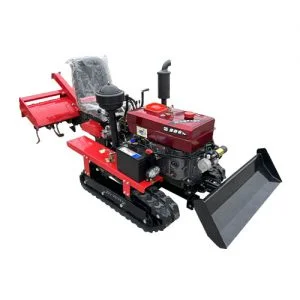
Engine Power and Horsepower
Choosing the right horsepower for your needs ensures that the tractor can handle the tasks you plan to undertake. For instance, higher horsepower may be necessary for heavy-duty mowing or tilling, while lower horsepower models are sufficient for lighter landscaping and maintenance tasks.
Transmission Options
Small tractors are available with different transmission types, including manual and hydrostatic. Manual transmissions offer simplicity and durability, while hydrostatic transmissions provide smooth operation and precise control, ideal for tasks requiring frequent speed and direction changes.
Attachments and Accessories
Evaluate the availability and compatibility of attachments such as loaders, backhoes, and rotary cutters. Consider future needs and opt for a tractor that supports a wide range of attachments, enhancing its versatility and utility throughout the year.
Buying Tips for Small Tractors
Key Features to Look For
Identify essential features such as engine horsepower, transmission type, loader lift capacity, and PTO (Power Take-Off) options. Each feature contributes to the tractor’s performance and versatility, ensuring it meets your specific requirements effectively.
| Feature | Buying Tip |
|---|---|
| Engine Horsepower | Opt for higher horsepower models for demanding tasks like heavy-duty mowing or plowing. |
| Transmission Type | Choose hydrostatic transmission for ease of use and precise control in varied operating conditions. |
| Loader Lift Capacity | Select a model with sufficient lift capacity to handle your heaviest loads effectively. |
| PTO (Power Take-Off) Options | Ensure the tractor offers multiple PTO options to accommodate various attachments and tasks. |
| Warranty | Look for models with longer warranties to protect your investment and ensure peace of mind. |
Conclusion
Small tractors are invaluable tools for a wide range of tasks, offering versatility, maneuverability, and cost-effectiveness for farmers, landscapers, and homeowners alike. By understanding their uses, benefits, and key considerations for purchase, you can select the right small tractor to meet your specific needs and enhance productivity on your property. Whether you’re maintaining a farm, managing a landscape business, or simply tending to your yard, a well-chosen small tractor can significantly simplify tasks and improve operational efficiency throughout the year.
FAQ
What size of small tractor is suitable for a residential property?
For residential use, small tractors with 20-30 horsepower are typically sufficient for common tasks such as mowing, tilling, and snow removal. Consider the size of your property and specific landscaping needs when selecting a tractor.
How often should small tractors undergo maintenance?
Regular maintenance is essential to keep small tractors in optimal condition. Follow the manufacturer’s guidelines for routine checks, fluid changes, and inspections of belts, filters, and hydraulic systems.
Can small tractors handle attachments like loaders and backhoes?
Yes, many small tractors are designed to accommodate a variety of attachments, enhancing their versatility for different applications. Verify attachment compatibility and consider investing in attachments that align with your intended uses.
What are the advantages of hydrostatic transmission in small tractors?
Hydrostatic transmission offers smoother operation and greater control, making it easier to maneuver and operate attachments. It allows for seamless speed adjustments and precise handling, improving overall efficiency and productivity.
Are small tractors fuel-efficient compared to larger models?
Generally, small tractors are more fuel-efficient due to their smaller engines and lighter weight. This efficiency translates into lower operating costs over time, making them a cost-effective choice for regular use on residential properties and small farms.

